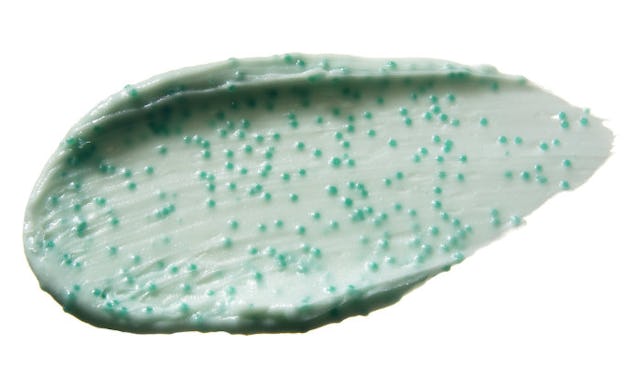Microbeads In Face Scrub Are Destroying The Environment. Seriously

President Obama has banned plastic microbeads from beauty products in the U.S., and that is excellent news for the environment.
For some time, microbeads–the tiny plastic beads suspended in face and body scrubs to remove dead skin–were the big thing in beauty products. Those tiny spheres were stuffed into practically every sort of face wash, cleanser, mask, or scrub a person could find, promising easy exfoliation and beautiful, youthful-looking skin forever. At first they seemed like a good idea. Microbeads are made of plastic and are perfectly smooth, uniform spheres, and therefore it seemed logical that they’d exfoliate more gently than irregular shaped exfoliants like sugar, ground walnut shells, and more. But few people thought about what would happen when those beads were rinsed off a person’s face and down the drain, where it turns out they are an utter disaster for the environment.
This week President Obama signed a bill banning plastic microbeads from cosmetics and toothpastes, and that is excellent news. The little plastic beads go down the drain and wind up in the sewage system. Unlike sand, dirt, and ground up nut shells, plastic microbeads float, making it virtually impossible to filter them all out, so they keep going and wind up in the rivers, lakes, and oceans. They’re also made of plastic so they never dissolve or biodegrade.
Once in the lakes and oceans, the microbeads can even get into the food supply. The microbeads look like tiny fish eggs to fish, turtles, and wildlife, which wind up eating them. Then other animals eat the fish, we eat the fish and the other animals, and we could wind up eating tiny little pieces of plastic that are made of the same stuff as garbage bags.
The microbeads might seem like a small problem–they are pretty tiny, after all–but according to this video by the Huffington Post, one bottle of face wash can contain 300,000 of them:
When lots of people use them, the environmental impact of microbeads really adds up. Approximately 300 tons of microbeads are released into the water every year in the U.S. Up to 1.7 million microbeads have been found per square kilometer in Lake Erie.
Microbeads are an environmental disaster, and they’re not even a product that we need. The world is full of safe exfoliants and scrubs that will not poison the water. Cocoa powder is one option. Ground azuki beans are another. Plastic microbeads are already banned in nine states in the U.S. This new law makes the regulation uniform and official across the country.
Microbeads are so harmful and unnecessary that even the companies producing them were not willing to come to their defense. Several major beauty corporations had already announced plans to phase the microbeads out of products. The new law will require them to do so by July 1, 2017. That’s great, but there’s no reason not to start reading ingredient labels and avoiding microbeads right now. Does anybody really want to brush their teeth with tiny little balls of plastic, anyway?
There’s no reason for plastic microbeads to exist, and that’s why it’s excellent news that they are finally being banned.
This article was originally published on